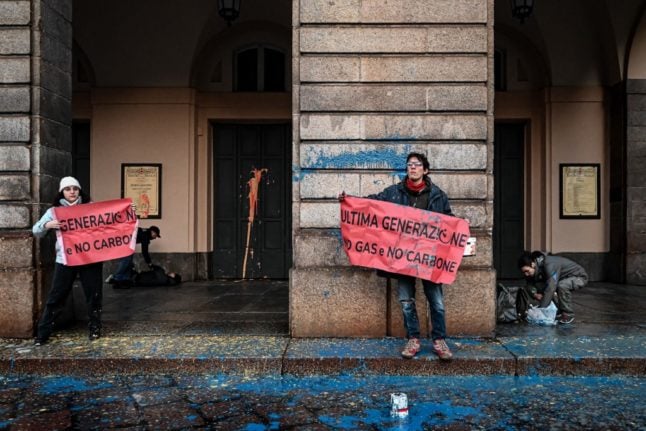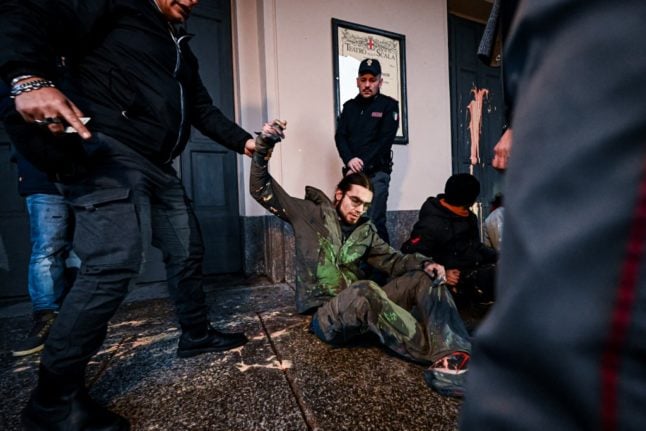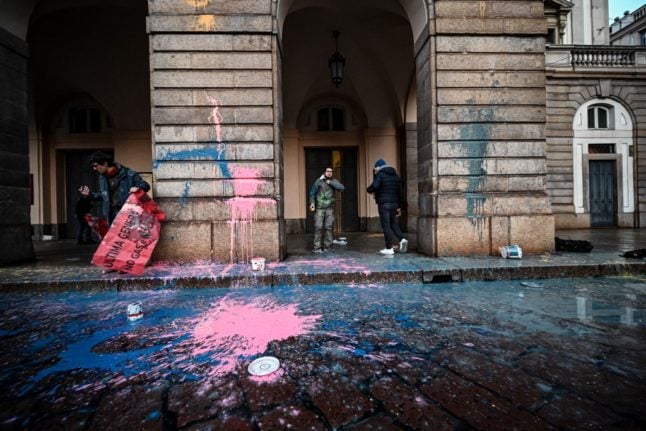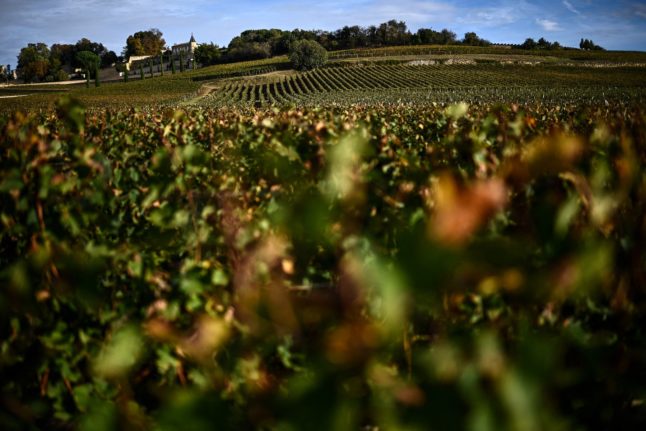The early morning protest came ahead of the gala opening of the new season on Wednesday night, with a scheduled performance of Russian-language opera ‘Boris Godunov’.
Five climate activists from the Last Generation (Ultima Generazione) protest group threw buckets of paint onto the facade of the building and inside the portico shortly after 7.30am, according to an AFP photographer at the scene.
Two people unfurled banners reading “Last Generation – No Gas and No Carbon”.
“We decided to stain La Scala with paint to ask the politicians who will attend the performance tonight to pull their heads out of the sand and intervene to save the population,” wrote Last Generation in a statement.
READ ALSO: Why are climate protesters glueing themselves to Italian artworks?
Police quickly arrived on the scene – where bright pink, electric blue and turquoise paint had splattered onto the sidewalk – and the activists were detained and taken away in police cars.
A team of cleaners from La Scala then began hosing off the building and the non-permanent paint appeared to have been entirely removed.

Last Generation said they were calling on Italy’s government to invest more in renewable energy and reduce carbon emissions.
“In order to avert the misery of its own people and safeguard people, homes and businesses, which are at risk from increasingly frequent floods and heatwaves, the government must act now,” it said, referring to last month’s landslide caused by torrential rains on the island of Ischia that killed 12 people.
Most recently, climate activists have targeted artworks inside museums throughout Europe in protests they say are designed not to damage the works but to focus attention on environmental disaster.
They have targeted masterpieces such as the ‘Girl with a Pearl Earring’ by Johannes Vermeer at The Hague’s Mauritshuis museum, Klimt’s ‘Death and Life’ in Vienna’s Leopold Museum, and Van Gogh’s ‘The Sower’, displayed at Rome’s Palazzo Bonaparte, hurling soup or other food at the paintings behind glass.
Last month at an exhibit in Milan, they covered a car repainted by Andy Warhol with flour.

La Scala’s opening night gala is expected to be attended by Prime Minister Giorgia Meloni, President Sergio Mattarella and European Commission President Ursula von der Leyen.
In light of the war in Ukraine, the choice of “Boris Godunov” – an opera sung in Russian that tells the story of an autocratic ruler and his people – was controversial.
Ukraine’s consul in Milan had protested the choice, calling it a propaganda coup for Russia.



 Please whitelist us to continue reading.
Please whitelist us to continue reading.
Member comments